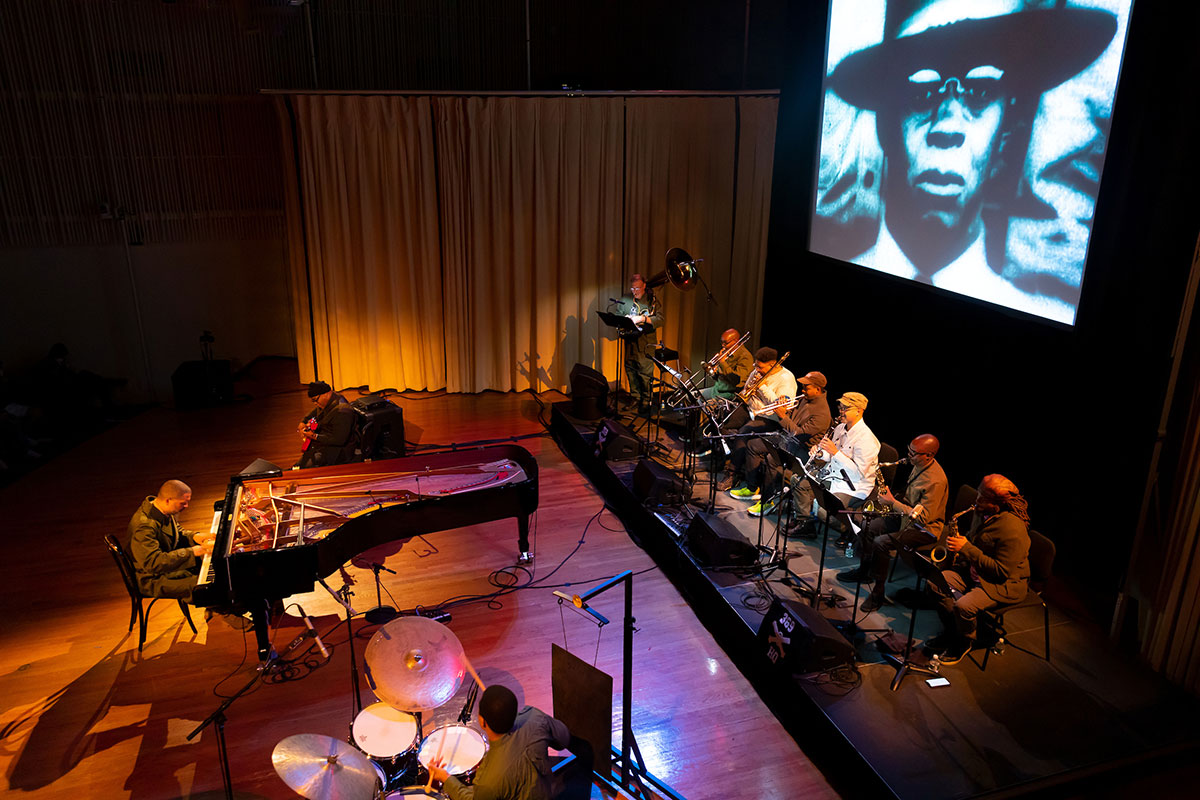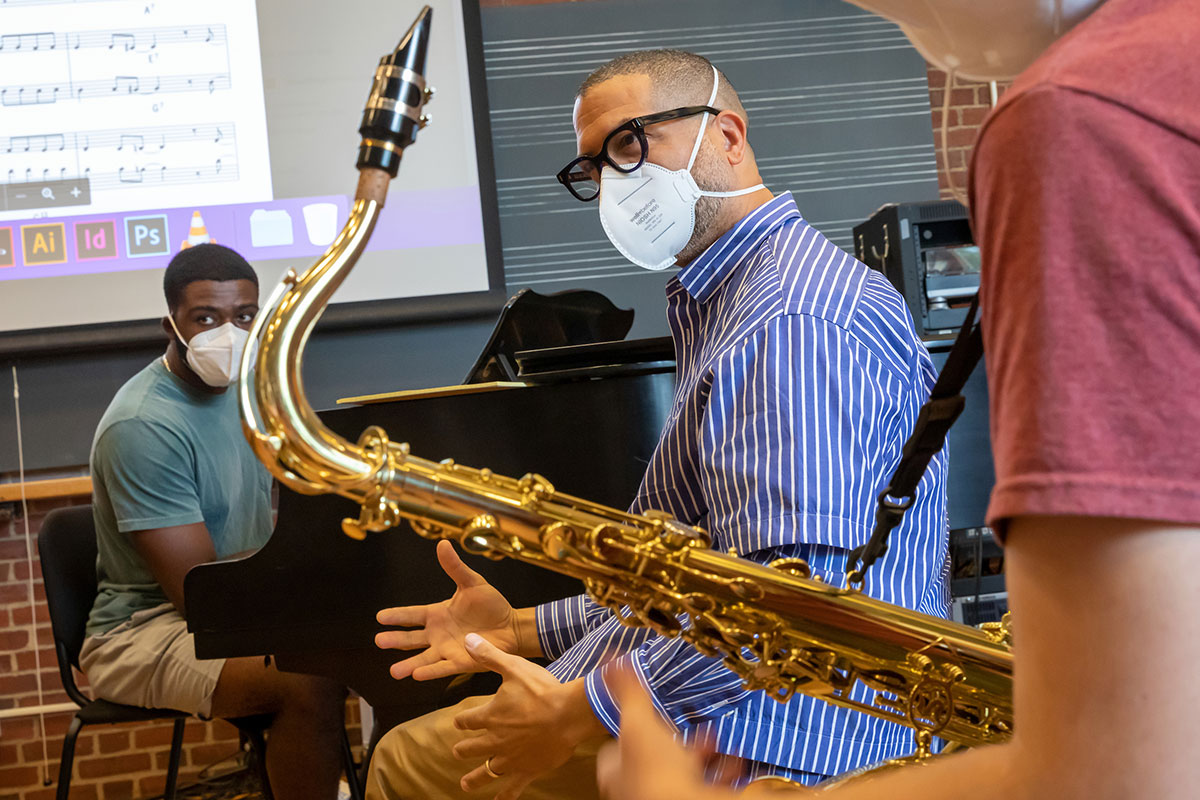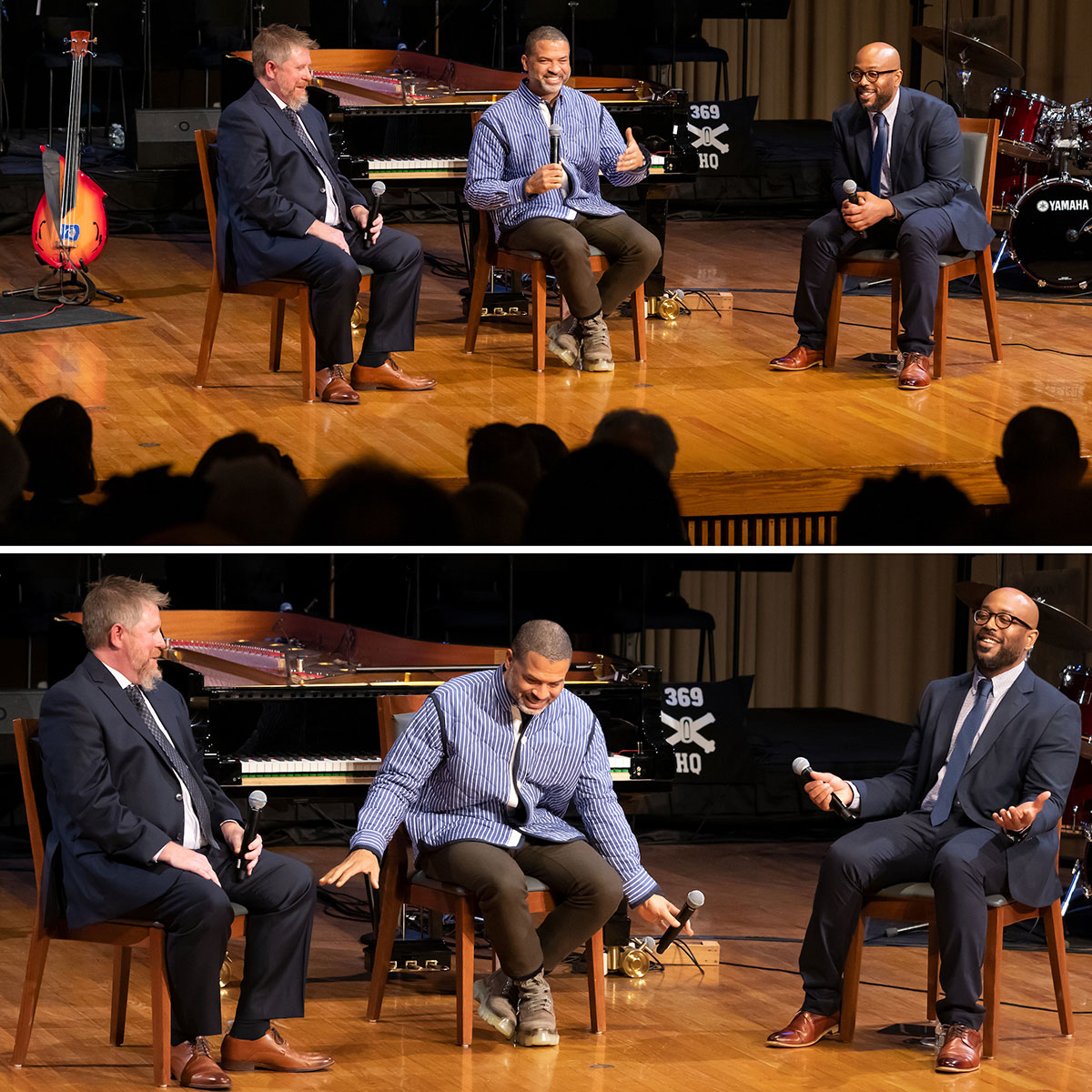Leading a jazz piano master class on Sept. 19, Presidential Scholar Jason Moran said his relationship with the instrument “started with pure disdain.” When he was a kid, his music teacher taught him to imagine that the piano would cut his hands if he dragged them on the keys. He feared and hated it so much that at one point he tried to break his family’s piano by pouring potpourri inside it.

Sponsored by both the President’s Colloquium on Race and Racism and the Music@Amherst series, Jason Moran presented a concert, James Reese Europe and the Harlem Hellfighters: The Absence of Ruin, as part of his visit to Amherst. Moran’s multidisciplinary program featured his Bandwagon bandmates—bassist Tarus Mateen and drummer Nasheet Waits—plus a seven-piece horn section, contributions from artist/writer/filmmaker John Akomfrah and visual materials from acclaimed cinematographer Bradford Young.
But that piano survived the abuse—and so, Moran came to learn, it’s an instrument that can withstand intense experimentation. “They didn’t make it out of paper!” he told the small group of Amherst and other local students in Buckley Recital Hall.
Famously, Moran’s early disdain for the piano grew into curiosity, passion and a groundbreaking career as a composer and performer, often with his trio The Bandwagon. He teaches at the New England Conservatory, serves as artistic director for the Kennedy Center and has won a MacArthur Fellowship.

Pianist, composer and educator Jason Moran attended multiple classes during his residency as a Presidential Scholar. Here, he worked with students in Professor Bruce Diehl's jazz theory and improvisation class.
Moran impressed upon the students in the master class that every piano is unique—even each of the two black Steinway grands on the Buckley stage—and that it always matters where, when and why a musician is performing. Playing in a concert hall at Amherst, for instance, is very different from playing amidst World War I, as was the case for James Reese Europe and the Harlem Hellfighters, to whom Moran paid tribute with a concert at Amherst a few days later, on Sept. 23.
Now in its second year, Amherst’s Presidential Scholars program brings leaders in anti-racist scholarship and policy to campus to present public lectures and performances, hold seminars, and interact with the College community. Moran spent five days in residence at Amherst as the first invited scholar of this academic year; the next will be Karma Chávez (Oct. 23–29, 2022), Hilton Als (Feb. 24–26, 2023) and Saidiya Hartman (April 4–7, 2023).

Using “Blues O Mighty,” a tune by saxophonist Johnny Hodges and recorded on the Oliver Nelson album More Blues and the Abstract Truth, students in Music 213 improvised with the melody as an initial guide.
In the master class, Moran demonstrated the “powerful, strange, peculiar, exciting” string of notes by Thelonious Monk that first inspired the presidential scholar to take the piano seriously. Then he played his rendition of James P. Johnson’s 1921 solo “Carolina Shout,” starting with high-pitched notes and descending to a thunderous rumble. In the middle of an original piece called “Reanimation,” composed for artist Joan Jonas in 2005, Moran stood up at the low end of the grand piano and reached inside it, plucking the strings to create a thumping rhythm that sounded almost electronic.

During a pre-concert conversation, Associate Professor of Music Jason Robinson (left) and Associate Professor of Black studies and sexuality, women's and gender studies Khary Polk (right) get animated with musician and Presidential Scholar Jason Moran (center).
Moran invited audience volunteers to come up and perform. One of them, Mathew Mueller ’24, shook his head and tapped his foot as he played “A Beautiful Love,” a jazz standard. But Moran encouraged him to “interrupt the form” and get into “unsafe territory”: try the song in a new key, move his arms more, open up his hands, delve into an extended intro that “gives a backstory” as to why he’s playing. Mueller asked Moran to show how he would play “A Beautiful Love” with his left hand, and Moran obliged, saying that the left hand paints the landscape that the right hand walks around on.
Moran closed the master class with another metaphor: “The instrument is a mirror,” he said. “Don’t be afraid to stare at it for a long time.”
